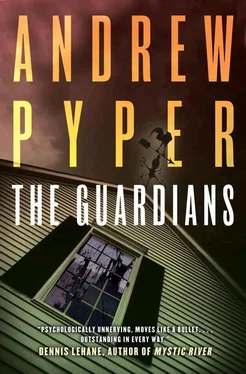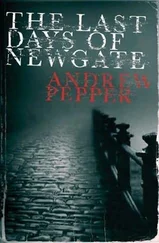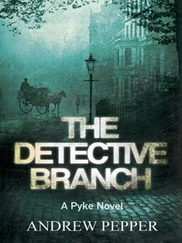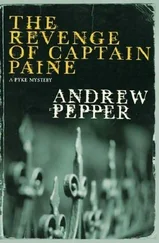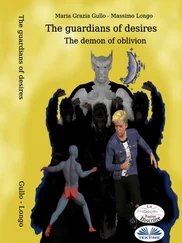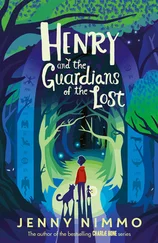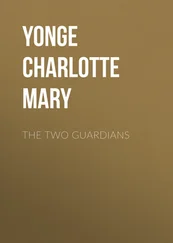Andrew Pyper - The Guardians
Здесь есть возможность читать онлайн «Andrew Pyper - The Guardians» весь текст электронной книги совершенно бесплатно (целиком полную версию без сокращений). В некоторых случаях можно слушать аудио, скачать через торрент в формате fb2 и присутствует краткое содержание. Жанр: Старинная литература, на английском языке. Описание произведения, (предисловие) а так же отзывы посетителей доступны на портале библиотеки ЛибКат.
- Название:The Guardians
- Автор:
- Жанр:
- Год:неизвестен
- ISBN:нет данных
- Рейтинг книги:3 / 5. Голосов: 1
-
Избранное:Добавить в избранное
- Отзывы:
-
Ваша оценка:
- 60
- 1
- 2
- 3
- 4
- 5
The Guardians: краткое содержание, описание и аннотация
Предлагаем к чтению аннотацию, описание, краткое содержание или предисловие (зависит от того, что написал сам автор книги «The Guardians»). Если вы не нашли необходимую информацию о книге — напишите в комментариях, мы постараемся отыскать её.
The Guardians — читать онлайн бесплатно полную книгу (весь текст) целиком
Ниже представлен текст книги, разбитый по страницам. Система сохранения места последней прочитанной страницы, позволяет с удобством читать онлайн бесплатно книгу «The Guardians», без необходимости каждый раз заново искать на чём Вы остановились. Поставьте закладку, и сможете в любой момент перейти на страницу, на которой закончили чтение.
Интервал:
Закладка:
Or perhaps I had to see for myself how she had been murdered.
Part of her lay on a blanket. No, not a blanket: a canvas drop cloth of the kind used by painters. The way it was smoothed out beneath her, buffering her from the hard dirt, gave the impression of a makeshift bed. The cloth told a history of a thousand mistakes: splashes of turquoise and yelow and off-whites falen from brushes or sloshed over the side of a kicked can. Now, as close as I was, I could see the more recent colours. Randy's bright nosebleed. Beneath it, the brown-red sprays and tracks emanating from the back of Heather Langham's skul.
Only then did I notice the screw. A fiercely beveled four-inch screw that had been pounded through a plank, sharp point up, which lay an arm's length from Heather's splayed fingers. Nearly half of the wood's length had been discoloured by blood. Maybe Heather had managed to pul it from the wound herself and toss it to where it now rested. Maybe someone else dropped it after seeing the job was done.
I leaned over. Bent so far across her body I had to brace myself on palms laid on the floor on the other side of her. For a second, my finger was hooked on the gold chain around her neck, puling the heart-shaped locket she was wearing to rest like an egg in the soft dimple at the base of her throat. I shook my hand free and the chain made a smal, watery sound as it settled over her skin. Then I lowered my head to the floor to look at her face.
Her eyes weren't fuly open as I would later dream them to be (the horrific clarity of marbles, twinkly and blind), but they weren't closed either. The lids empurpled, a colour of eyeshadow worn by only the sluttiest girls at school. The result was an expression I initialy confused with seductiveness. It made me think that maybe this was Heather's twin, the one who liked to do al the naughty stuff Heather would never do. But then I saw the teeth knocked out of her mouth, the white, bloodless gums. The liquefied nose. I saw that she had been alone as the life emptied out of her, and that this aloneness was a thing worse than dying.
A hand came down on my shoulder. A touch that lifted me away from the particulars of Heather Langham's body to look at her again from a standing height. Now, from only the added distance of a few feet, she had lost the Heather-ness I could stil find in her face as I bent over her. She was merely lifeless again. A sickening leftover of violence.
The hand left my shoulder. I turned to see it was Ben's.
"Ideas, gentlemen?"
We buried her. Right there in the celar floor. Miss Langham, al future, being roled by the toes of our boots into the three-foot trench we managed to axe and heave from the copper-smeling earth on which the Thurman house stood.
It's a struggle now to remember much of what must have been the hour or two we spent at this task, other than the work itself: the selection of tools found in the celar's corners and hanging on its rusted hooks, the shifts of labour kept short enough to maintain a near- frantic pace, the space's encroaching shadows we held at bay with swings of the flashlight's beam. We did our best to keep her body in the dark.
We stopped only twice. Once when Carl started to cry. The second time when Randy ran upstairs.
Carl's tears were somehow more disturbing than the fear that Randy had rushed straight to his dad to tel him the terrible things his friends where doing over at the Thurman place. I suppose Randy's not being able to stick it out was the lesser surprise of the two. In any case, once he was gone we continued to axe and dig, waiting to hear the approach of sirens. Maybe fifteen minutes after he'd gone, though, Randy made his way back into the circle of light to pick up a shovel and take his place in the deepening trough.
When Carl started to cry, we tried our best to ignore it. Each of us had taken a break at one point—me to throw up in the corner, Ben to sit on the ground with his head between his knees—and we expected Carl to recover on his own as we had. Instead, he got louder. Curled up with his back against a support post, wailing. If it was anyone else, we probably would have stayed at it. But the alien sound of Carl's grief sapped us of our strength, so that we could only kneel around him, our hands on his elbows, the sides of his head, as though we were holding him together.
It wasn't our fault .
This would be our unspoken refrain for years to come. But how many accused have said this and convinced none, not even themselves, of their innocence?
We couldn't have murdered Miss Langham. We loved her. Yet we knew intuitively that love in such close proximity to violence made, in itself, a strong case for culpability. In the crime stories picked up off the wire in The Grimshaw Beacon, it was the ones who claimed to least wish harm upon a victim who usualy turned out to be the ones who'd done it.
And there was the evidence too. Randy's blood. Ben's mother, who might have seen us slipping into the town's one forbidden place.
We may have discussed al this aloud at the time. But our decision was ultimately based not on any sober deliberation. It was a reaction we were locked into from the moment Randy's light found our music teacher's body in the darkness. Our instinct to cover up, to hide, to pretend we were never there was instant and inarguable.
It was our first real summoning of the masculine talent for non-disclosure. We were becoming men. Becoming gravediggers.
[7]
He assumes it was only a side effect of grief, a Parkinson's halucination, some aftertaste of Haloween graveyard imagery brought back from a tale told with a flashlight under one of our chins thirty years ago. Whatever it was, Randy doesn't believe I saw Carl. If I mentioned I also saw the boy from the Thurman house, a ghoul who spoke directly to my thoughts (an observation I make a point of not making), he wouldn't have believed that either. If I'd told him about the boy, he might now be taking me to be admitted to Grimshaw General's psych ward and not walking through the town's streets, dusk faling around us like tiny charcoal leaves.
"Why would he run?" Randy asks for the third time.
"I didn't get a chance to ask."
"But whoever you saw wasn't just avoiding you. He was, like, gone."
"Maybe he didn't want to see us. Maybe he's sick and he doesn't want anyone to know. Maybe he's not himself anymore."
"Or the law is after him."
"There's that too."
Randy carries on to the corner and rounds it. For a moment, it appears that he is about to slip away into nothing just as Carl—or the boy—did.
"Where you going?" I cal after him.
"Where do you think?" he shouts back from the other side of what was, at one time, Brad Wickenheiser's hedgerow.
"You don't think Carl is—"
"Not there" he says, not giving me the chance to say "Caledonia Street" or "the Thurman place." "I'm going to Jake's."
"I'l get the first round."
"And an extra one for Ben."
"That's right," I say when Randy comes back to loop an arm over my shoulders. "An extra glass for the watchman."
"Ben was part Irish, wasn't he?" Randy asks as we head into Jake's Pool 'n' Sports, shaking the rain off our coats.
"I think his dad was. Or his grandfather. Or something."
"It'l do."
"For what?"
"A wake."
Tracey Flanagan is our waitress again. From across the room she gives us a comicaly triumphant thumbs-up as we assume our positions at what is now "our table,"
the two of us hopping atop the same stools as the night before. She giggles at Randy, who mimes thirst, his tongue out and hands clutched to his throat.
"I took the liberty," she says as she comes to us, pitcher in one hand, mugs in the other.
"I believe we'l be requiring the assistance of Bushmils shots as wel today, Tracey," Randy says in a leprechaun accent.
Читать дальшеИнтервал:
Закладка:
Похожие книги на «The Guardians»
Представляем Вашему вниманию похожие книги на «The Guardians» списком для выбора. Мы отобрали схожую по названию и смыслу литературу в надежде предоставить читателям больше вариантов отыскать новые, интересные, ещё непрочитанные произведения.
Обсуждение, отзывы о книге «The Guardians» и просто собственные мнения читателей. Оставьте ваши комментарии, напишите, что Вы думаете о произведении, его смысле или главных героях. Укажите что конкретно понравилось, а что нет, и почему Вы так считаете.
